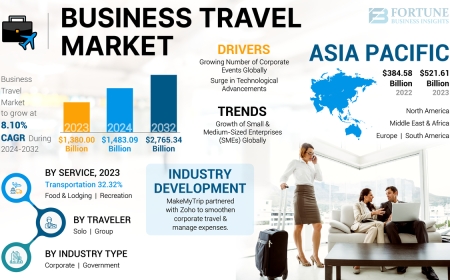Top 10 Tips for Networking Successfully
Introduction Networking is not about collecting business cards or adding strangers on LinkedIn. It’s about cultivating meaningful, mutually beneficial relationships that endure over time. In a world saturated with transactional interactions, the most successful professionals stand out not by how many people they know, but by how deeply they connect. The challenge? Most networking advice is superfi
Introduction
Networking is not about collecting business cards or adding strangers on LinkedIn. Its about cultivating meaningful, mutually beneficial relationships that endure over time. In a world saturated with transactional interactions, the most successful professionals stand out not by how many people they know, but by how deeply they connect. The challenge? Most networking advice is superficialfocused on quick wins, forced small talk, or manipulative tactics that erode trust instead of building it.
This article cuts through the noise. Weve distilled decades of real-world experience, behavioral psychology, and proven success stories into 10 actionable, trustworthy tips for networking successfully. These arent trendy hacks or empty platitudes. Theyre principles used by leaders, entrepreneurs, and innovators whove built lasting influence without compromising integrity. Whether youre an introvert, a recent graduate, or a seasoned executive, these strategies will help you connect authenticallyand get results that last.
Before we dive into the tips, lets address a critical foundation: trust. Without it, no connection survives. With it, even the simplest interaction can open doors you never imagined.
Why Trust Matters
Trust is the invisible currency of networking. Its the reason one person remembers your name months after a single conversation, refers you to a key contact, or invites you to an exclusive event. Trust isnt built through grand gestures or polished pitches. Its earned through consistency, authenticity, and reliability.
Research from Harvard Business Review shows that professionals who are perceived as trustworthy are 3.5 times more likely to be recommended for opportunities than those who are merely competent. Competence gets you in the room. Trust gets you a seat at the table.
Yet most networking advice ignores trust entirely. It pushes you to pitch faster, follow up more, or be more charismatic. These tactics may generate short-term attention, but they rarely generate loyalty. In fact, over-aggressiveness often triggers skepticism. People sense when theyre being used.
True networking success comes from being someone others want to knownot because you have something to offer, but because you make them feel seen, valued, and respected. This requires patience, emotional intelligence, and a commitment to giving before you receive.
The 10 tips that follow are designed not to manipulate, but to elevate. Each one reinforces trust as the core of every interaction. Theyre not shortcuts. Theyre foundations.
Top 10 Tips for Networking Successfully You Can Trust
1. Show Up With the Intention to Give, Not to Take
The most powerful networking mindset shift you can make is to stop thinking, What can this person do for me? and start asking, How can I help this person?
When you approach every conversation with generosity, you remove the pressure to perform. You become memorablenot because you sold yourself, but because you made someone else feel better. A simple actsharing a relevant article, making an introduction, offering feedback on a projectcreates a ripple effect.
Studies in social psychology confirm that people are far more likely to reciprocate when they feel theyve received something of value without obligation. This is the principle of reciprocity, but it only works when its genuine. Forced generosity feels transactional. Authentic generosity feels human.
Start small: At your next event, identify one person you can help without expecting anything in return. Maybe its connecting them with a resource, offering to review their pitch, or simply listening without interrupting. That single act will often lead to more meaningful outcomes than any elevator pitch ever could.
2. Listen More Than You Speak
Listening is the most underrated skill in networking. Most people talk to respond, not to understand. Theyre already formulating their next point while the other person is still speaking. This creates shallow interactions and missed opportunities.
True listening means being fully present. It means setting aside your agenda to hear whats being saidand whats not being said. Pay attention to tone, pauses, and emotional cues. Ask clarifying questions. Reflect back what you hear: So what youre saying is that youre looking for ways to streamline client onboarding?
When you listen deeply, you uncover real needs. And when you address those needseven if theyre unrelated to your goalsyou build trust faster than any self-promotion ever could.
Try this: In your next conversation, aim to speak only 30% of the time. Let the other person dominate the dialogue. Notice how much more you learnand how much more they open up.
3. Follow Up With Purpose, Not Pressure
Following up is essentialbut most people do it wrong. Generic messages like Great meeting you! or Lets grab coffee sometime are easily ignored. They lack substance. They feel like checkboxes.
Effective follow-up is personalized, timely, and value-driven. Reference something specific from your conversation. Add a resource, insight, or introduction that relates to their interests. For example: You mentioned youre exploring AI tools for content creation. I came across this case study on how a marketing team reduced workload by 40%thought youd find it useful.
Timing matters too. Follow up within 2448 hours, while the interaction is still fresh. But dont overdo it. One thoughtful message is worth ten desperate reminders.
The goal isnt to close a deal. Its to reinforce the connection. If they respond, great. If they dont, respect their space. Trust is built through consistency, not coercion.
4. Be Specific About What You Do
I work in marketing or Im in tech are meaningless. They tell people nothing about your value, your passion, or your unique perspective.
Instead, describe what you do in terms of impact. I help SaaS startups reduce customer churn by redesigning onboarding flows based on behavioral data. Or: I coach first-time founders through their first funding round using real-world frameworks Ive tested over 12 years.
Specificity creates clarity. Clarity attracts the right people. When youre precise, you filter out noise and invite meaningful connections. People know exactly how they can collaborate with youor refer you to someone who needs your expertise.
Practice your one-sentence description until its natural, concise, and compelling. Then test it. Ask someone after you say it: Whats one thing you remember? If they cant recall it, simplify further.
5. Build Relationships Before You Need Them
The most common networking mistake? Only reaching out when you need something. Thats not networkingits transactional begging.
True networks are built over time. Theyre nurtured through regular, low-pressure engagement. Send a thoughtful message when someone publishes an article. Congratulate them on a milestone. Share their content. Comment meaningfully on their posts.
These small acts compound. They signal that youre not just a user of the networkyoure a contributor. When you eventually need help, youre not asking a stranger. Youre reaching out to someone who already knows, likes, and respects you.
Set a monthly goal: Connect with three people you admirenot because you need something, but because you appreciate their work. Over time, these relationships become your most valuable assets.
6. Prioritize Quality Over Quantity
Having 5,000 LinkedIn connections doesnt mean you have a network. It means you have a list.
Quality networking means investing in a few deep relationships rather than scattering energy across hundreds of superficial ones. One strong connection can lead to multiple opportunities. A hundred weak ones lead to silence.
Focus on people who align with your values, goals, and work ethic. Look for those who are generous, curious, and consistent. These are the people who will show up for you when it matters.
Use the 80/20 rule: 80% of your networking value will come from 20% of your contacts. Identify those 20%. Nurture them. Reconnect quarterly. Share insights. Ask thoughtful questions. Turn connections into collaborations.
Its better to have five trusted allies than five hundred acquaintances.
7. Show Up Consistently in the Right Places
Networking isnt about attending every event you can find. Its about showing up where your ideal connections gatherconsistently.
Whether its an industry conference, a local meetup, a Slack group, or a weekly podcast, choose 13 platforms where your target audience is active. Then commit to being there regularly. Dont chase trends. Build presence.
Consistency builds recognition. When people see you at the same event, in the same forum, month after month, they begin to associate you with value. You become a known entitynot a name on a list.
Start small. Pick one community. Attend once a month. Contribute something meaningful each timea comment, a question, a resource. After six months, youll be surprised at how many people already know who you are.
8. Be VulnerableIt Builds Real Connection
People dont connect with perfection. They connect with honesty.
Sharing a small struggleI was nervous presenting to that board, or I almost quit last yearmakes you human. It invites others to open up too. Vulnerability creates emotional safety. And emotional safety is the foundation of trust.
This doesnt mean oversharing or dumping your life story. It means being willing to say, I dont have all the answers, or That didnt go as planned, but I learned a lot.
Studies in interpersonal communication show that vulnerability increases likability and perceived authenticity. People trust those who admit imperfection because it signals confidence, not weakness.
Try this: In your next conversation, share one small challenge youre working on. Then pause. Let the other person respond. Youll be amazed at how often they reveal something personal in return.
9. Offer Value Without Asking for Anything in Return
This is perhaps the most powerfuland most overlookedprinciple of trustworthy networking.
Offering value without expectation is the ultimate signal of integrity. It says: I dont need anything from you right now. I just want to help.
This could mean:
- Writing a recommendation for someones LinkedIn profile
- Introducing two people who should know each other
- Sharing a free tool or template you created
- Reviewing a draft or giving honest feedback
When you give without strings, you create a debt of gratitudenot a transaction. People remember kindness. And they remember those who gave without asking.
Start a value log. Each week, write down one way you can help someoneeven if it takes five minutes. Do it. Dont tell them youre doing it for networking. Just do it because its right.
Over time, this habit transforms your reputation. You become the person others think of firstnot because youre loud, but because youre reliable.
10. Measure Success by Relationships, Not Results
Most people measure networking success by job offers, deals closed, or followers gained. Thats a mistake.
True networking success is measured in depth, not volume. Did someone reach out to you months later because they remembered your advice? Did you receive an unsolicited referral? Did someone thank you for being a sounding board during a tough time?
These are the real wins.
Shift your metric from How many people did I connect with? to How many people feel seen by me?
Track your progress by journaling: Who did you help this week? Who reached out unexpectedly? What conversations left you feeling energized, not drained?
When you focus on relationships, results follow naturally. Theyre not the goaltheyre the byproduct of trust, consistency, and generosity.
Comparison Table
The table below contrasts common, untrustworthy networking practices with the trustworthy alternatives outlined in this guide. These arent just tipstheyre mindset shifts.
| Common Approach | Trustworthy Alternative | Why It Works |
|---|---|---|
| Focus on what you can get | Focus on what you can give | Generosity builds loyalty; self-interest breeds suspicion. |
| Talk about yourself constantly | Listen more than you speak | People remember how you made them feel, not what you said. |
| Follow up with generic messages | Follow up with personalized, value-driven notes | Specificity signals genuine interest and attention. |
| Use vague descriptions like Im in tech | Be specific about your impact and niche | Clarity attracts the right people and filters out noise. |
| Only reach out when you need help | Build relationships before you need them | Trust is earned over time, not summoned in crisis. |
| Chase numbers: more connections = more success | Prioritize depth over breadth | Strong relationships yield far more opportunity than weak ones. |
| Attend every event to be seen | Show up consistently in the right places | Presence builds recognition; sporadic appearances dont. |
| Present a flawless, polished image | Be vulnerable and human | Authenticity creates emotional connection and trust. |
| Help others with strings attached | Give without expecting anything back | Unconditional generosity creates lasting goodwill. |
| Measure success by deals closed or followers gained | Measure success by relationship depth and emotional impact | Meaningful connections create organic, sustainable opportunities. |
FAQs
Is networking still effective in the age of social media?
Absolutelybut only if its done authentically. Social media amplifies your presence, but it doesnt replace human connection. A LinkedIn message with no context wont build trust. A thoughtful comment on someones post, followed by a personalized email, will. Use digital tools to extend real relationships, not replace them.
What if Im introverted? Can I still network successfully?
Yes. Introversion isnt a barrierits an advantage. Introverts often listen better, ask deeper questions, and build more meaningful connections. You dont need to be the loudest person in the room. You just need to be the most thoughtful. Focus on one-on-one conversations, small groups, and written communication. These are often more effective than large events.
How long does it take to see results from trustworthy networking?
Trust takes time. Most people expect results within weeks. Real networking success unfolds over months and years. Dont look for immediate payoffs. Look for consistent progress: Did someone remember your name? Did they share your content? Did they introduce you to someone new? These are early signs of trust forming. The results will follow.
What if someone doesnt respond to my follow-up?
Dont take it personally. People are busy. They may have missed your message, or they may not be in a position to engage right now. Move on gracefully. Stay visible in their worldcomment on their posts, share their work. If the connection is meant to deepen, it will. If not, youve still built your reputation by being respectful and generous.
Can networking help me even if Im not looking for a job or a client?
Definitely. Networking isnt just for career advancement. Its for learning, inspiration, collaboration, and personal growth. You might meet someone who challenges your thinking, introduces you to a new book, or becomes a mentor. The value isnt always transactional. Sometimes, its transformational.
How do I know if someone is worth investing in?
Look for three traits: curiosity, consistency, and generosity. Do they ask thoughtful questions? Do they follow through on promises? Do they help others without expecting something in return? These are the people who will be there for you when it matters. Avoid those who only engage when they need something.
Should I connect with people I dont know on LinkedIn?
Only if you personalize your request. A generic Id like to add you to my network is ignored. Instead, say: I read your article on X and found your perspective on Y really insightful. Id appreciate the chance to connect. Personalization increases response rates by over 70%.
Is it okay to network with competitors?
Yesif done ethically. Many of the most valuable professional relationships are formed across industries or even with competitors. The goal isnt to steal clients or ideas. Its to share insights, learn from different perspectives, and build a broader ecosystem of trust. Healthy competition thrives in networks built on mutual respect.
Conclusion
Networking isnt a skill you master overnight. Its a practicea daily commitment to showing up as your most authentic, generous self. The 10 tips outlined here arent tricks. Theyre timeless principles rooted in human behavior and psychological truth. They work because they honor the other person, not because they manipulate them.
Forget about chasing numbers. Forget about forcing connections. Focus instead on being the kind of person others want to knownot because you have something to sell, but because you make them feel understood, valued, and inspired.
Trust is the foundation. Generosity is the fuel. Consistency is the engine. And when you combine them, you dont just network successfullyyou become a magnet for opportunity, collaboration, and meaningful relationships.
Start today. Choose one tip. Practice it. Then another. Over time, your network wont just grow. It will deepen. And in that depth, youll find not just professional successbut genuine belonging.


























